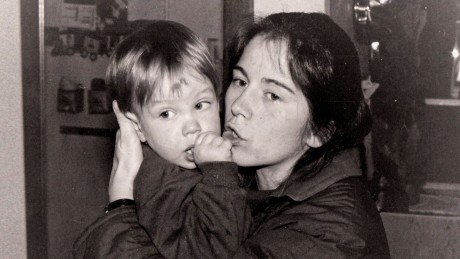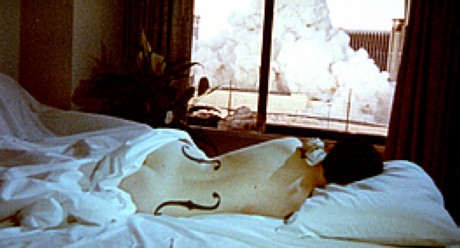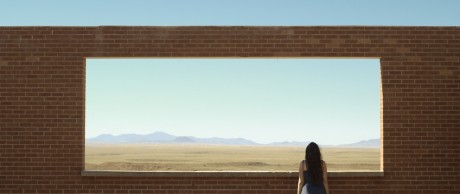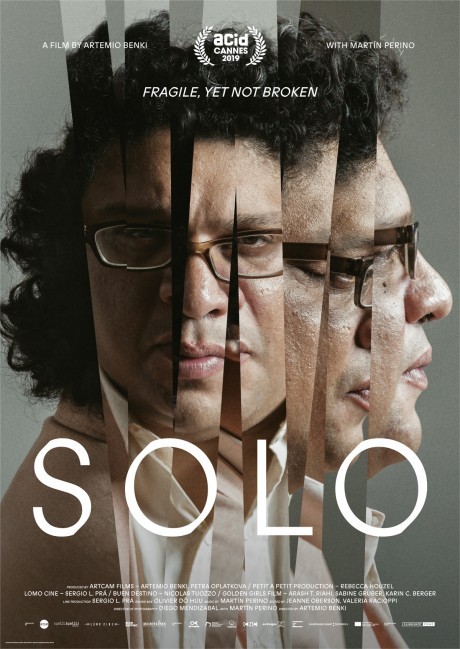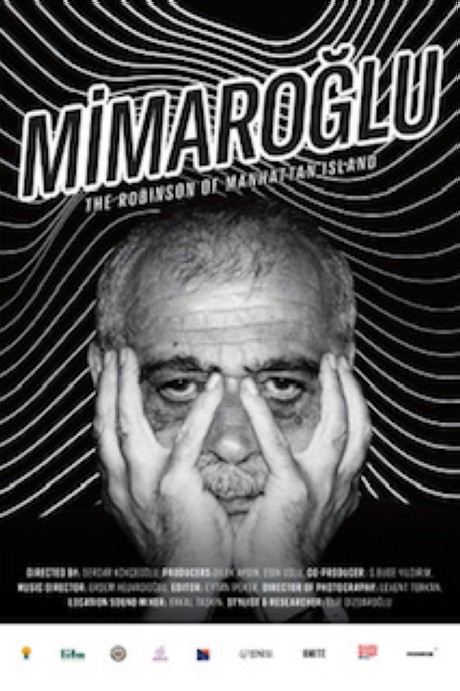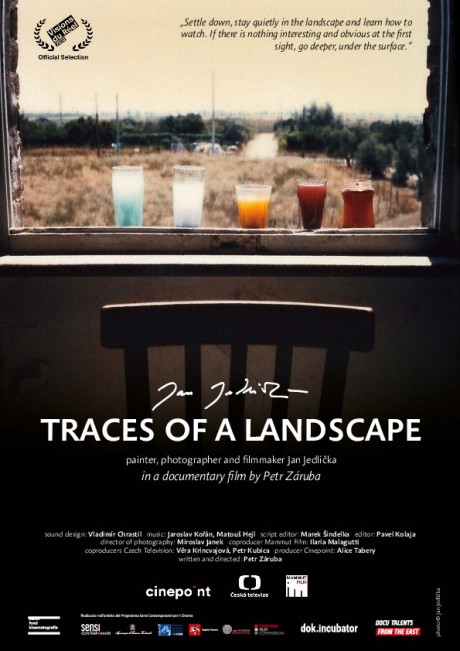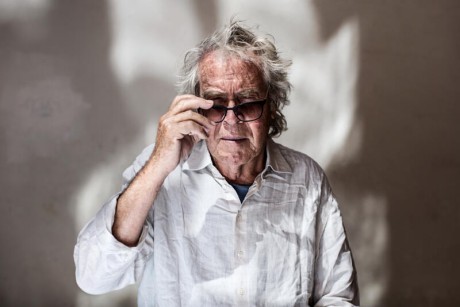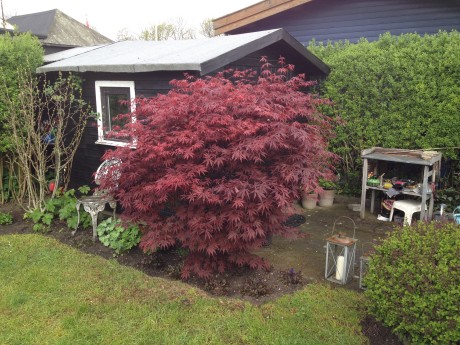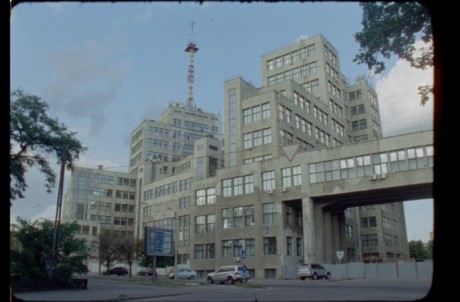EPISODE 1
Jeg ser nu i dag søndag den 8. marts 2020 Mikala Kroghs Scandinavian Star. Den første episode, som DR 1 i morgen aften vil vise som premiere på en opsigtsvækkende tv-serie på i alt seks 1 times episoder. På den samme måde vil jeg nu som et lommebogsnotat skrive en foreløbig anmeldelse, men det skal dog ikke være en hemmelighed: det er en forventningsfuld anmeldelse. Efter dette store oplæg jeg oplever i afsnit 1, venter jeg mig nemlig intet mindre end den endelige opklaring af kriminalgåden, disse gennem mange år i en stadig uro arkiverede kendsgerninger gemt under etiketten Scandinavian Star. Men rigtigheden i dem skal som i en retssag omsider bevises efter lovens skarptskrevne regler. Det har Mikala Krogh åbenlyst påtaget sig ved at benytte journalistikkens og tv-dokumentarens tilsvarende fagligt krævende lovbud om sandhed og evidens.
Det er en fabel med billeder af levende mennesker, ikke af dyr, om de rige ualmindelige og de nøjsomme almindelige. Om at de rige snupper de nøjsommes penge og derefter kvæler dem, myrder dem i brande. Fablen er således en undersøgende tv-dokumentar som endevender arkivmateriale, vidneudsagn og rekonstruktioner og ved dokumentarens gennemførte æstetik overbeviser mig – i den grad overbeviser mig – om at fablen er dækkende for hvad der i sandhed skete dengang for tredive år siden med Scandinavian Star en kold mørk nat på Kattegat. Altså er det en moralsk historie om rige og magtfulde mænd med skumle hensigter om mere og mere afkast over for fattige og magtesløse familier med kærlighedsfulde hensigter om at mødes til dåbsfester ved borde dækket af engle. Skyld over for uskyld.
Jeg tror jeg vil se og forstå hele tv-serien som en konfrontation mellem disse to verdener, forretningsfolkene som er skildret i serien (en for mig ukendt almindelighed) og familierne skildret i serien (en for mig kendt almindelighed) i en fabel vendt om, så mennesker bytter plads med Æsops dyr, om de rige og de fattige, de kynisk udspekulerede og de sandt naive.
En moralsk historie bygget af detalje efter detalje som Mikala Krogh med sit hold gennem år har gravet frem, renset af og sat i sammenhæng så deres klarhed og evidens kan ses og de kan sættes ind i fortællingens faktuelle videngrundlag. Her dukker dokumentarens indholdselementer op som et, til at begynde med, uoverskueligt forløb af hændelser, men det samler sig for mig ved vidneudsagnene som i rolige optagelser, i korte præcise klip limer brudstykkerne på plads i et forklarende billede af en brutal kultur over for en ømheds virkelighed, disse mænds over for mine heltinders, disse skurke kan ikke se og fatte denne dokumentar, jeg kan se den, min forfærdelse er en anden end deres nervøsitet.
Scandinavian Star er et meget stort og meget alvorligt anklageskrift: mordbrand med 159 døde, skade på mange derudover, livsvarig lidelse for de fleste af de overlevende.
Mikala Kroghs tv-serie er med et minutiøst omhyggeligt samlet bevismateriale og en række rystende vidneudsagn hvor hver fældende del af udsagnet er omhyggeligt valgt og klippet helt rent (der er jo ingen fortællestemme, for første gang i meget lang tid savner jeg den ikke) og kunstfærdigt redigeret til en smertende og uafrystelig fortælling – så realistisk uhyggelig og vildt spændende at mit sind og min krop ikke forlader skærmen ét sekund af den time et afsnit varer.
EPISODE 2
Det her er en voldsom stigning i intensitet, det er så spændende at virkeligheden omkring mig forsvinder sammen med min fulde opmærksomhed ind i tv-skærmen. Episoden handler om og udfolder og bearbejder i fire afgrænsede afsnit mærker jeg, rædslen, brutaliteten, sabotagen og modet på skibet den nat. Der er først og tror jeg også fremmest vidnerne og så de dybt virkende rekonstruktioner til at berette det første afsnit om branden, så er der i nogle af vidnernes fortællinger og forklaringer skurke, nogle brutale bagved og andre saboterende på scenen. Til sidst kommer de modige reddere og episoden bliver langsommere og mere tænkende og vækker min vrede og mine mistanker så jeg spændes op til opklaringerne som nok begynder i den følgende episode.
Nu i episode 2 er der således først rædslen. Det begynder med de uskyldiges angst. De opdager at ingen ved noget om redningsbådene, ingen overhovedet i den før den fatale rejse så hastigt sammensatte besætning. Der har ikke været brandøvelser og evakueringsøvelser. Trommeslageren fra det band som underholdt i restauranten må minde dem som i panik og uorden forsøger at entre redningsbådene om at de skal huske bundproppen som altid er skruet af så regnvand kan løbe fra. Det ved han fra øvelser på andre krydstogtskibe. Besætningsmedlemmerne forsøger at spørge kaptajnen, men han er tilsyneladende lammet af rædsel. Vi ser nu senere nærbilleder af detaljer ved bådene, motorer virker ikke, åregafler og årer falder fra hinanden i opløsning. Ingen har brugt, endsige tilset redningsbådene i årevis.
Kamrene hvor passagererne og de lavere rangerende besætningsmedlemmer sover ligger tæt i tre dæk. Gange og trapper er en labyrint og uoverskuelige når lyset går ud og røg fylder alt og ilden breder sig. De overlevende fortæller stadigvæk traumeramte at de måtte gå hen over de døende og de døde for at komme op og ud.
En vældig stor gennemgående rekonstruktion skildrer netop denne brand og dens karakteristika, det er gribende, det kan læses som en skrivemåde, men er helt sandt: jeg oplever i minutter disse filmscener som at være der dengang, i min egen angst og klaustrofobi.
Brutaliteten hos rederiledelsen og ejerne bag findes først i drypvise oplysninger: Skandinavian Star var Bahama indregistreret, altså ingen myndighedskrav, ingen reguleringer, ingen brandøvelser. Oplysninger sås i mig og min forargelse og vrede vokser som min indsigt i forretningsfolkenes interesser øges, og så konfronteres jeg med maskinchefen og chefelektrikeren, ejernes hjælpere og medskyldige vil jeg tro. De to ankommer i helikopter og fires ned på det brændende skib hvor slukningsarbejdet er i gang. De siger det er for at hjælpe røgdykkerne som kom først, også med helikopter, og de øvrige brandfolk fra Göteborg.
Men det viser sig at de forsvinder ned i maskinrummet, der skal de udføre sabotagen, afbryde pumperne, så de meget vand fra brandslukningen får Scandinavian Star i en mere og mere truende slagside som vil få båden til at kæntre og hurtigt synke så alle spor slettes. Dette er de skyldiges og de medskyldiges plan. Vel fra begyndelsen. Jeg får se.
De uskyldige er passagererne og de underordnede besætningsmedlemmer. Deres redningsmænd er først styrmanden på færgen Stena Saga og hans trænede og samarbejdede besætning, som kan sætte en båd i vandet og evakuere overlevende. Så er der brandfolkene med det lille røgdykkerhold i spidsen, de trænger direkte ind i og ned i katastrofeområdet med overlevende isoleret i brandfrie, røgfrie lommer og så de omkomne alle vegne. En røgdykker udbryder i radioen tilbage til sin leder, at findes der et helvede på jorden er det her. Brandchefen, på samme måde fyldt af erfaringens mod deler til mig den fortælling og så også sit lavmælte skarpe vidneudsagn om maskinchefen og chefelektrikeren som lukkede vandtætte døre som brandfolkene med nøje tilsavede træstykker holdt åbne for at give deres slanger frit løb. Og denne rolige mand konkluderer: sabotører.
Først nu efter denne episodetimes følelsesskrue trækker jeg vejret og tænker: hvad var nu det? Tidligere hed filmklipningen montage, altså sammensætning af alle disse enkeltdele, manuskript, fotografi, instruktion, vidneudsagn… Jeg har nu oplevet alt dette hver for sig fremragende arbejde i Mikala Kroghs værk samlet i en moderne montage, et mesterværk i den dokumentariske montages kunst.
EPISODE 3
Jeg må hvile mig ved noget trygt, og nu som i de første episoder er det gennem dette vidne jeg vælger at forstå en vigtig del af hvad der skete på skibet den nat og den morgen. Det er fordi jeg vældig godt kan lide ham i hvert et klip fra interviewet og måske fordi han er som hentet ud af en Bergmanfilm, blandt de gode og solide folk. Ikke slynglerne.
Han var dengang og er nu i tv-serien den dygtige brandchef, som sender det første røgdykkerhold om bord på det brændende skib, og han leder brandslukningen da flere brandmænd er kommet om bord sammen med ham, han ser andre personer komme om bord med helt andre opgaver end de angivne og gør sig sine tanker…
Jeg farer vild i historisk nutid, mener han gjorde sig sine tanker som han nu deler med kameraet og mig. Da Skandinavian Star er bugseret til Lysekil i Sverige ser jeg ham ganske kort på kajen, han er gået i land med sine folk, et nyt hold brandmænd overtager efterslukningen. Jeg ser ham ikke mere, men han kan da ikke være skrevet ud Mikala Kroghs serie? Hun har jo fået mig til at holde af ham, vente med største spænding på at han længere fremme i forløbet føjer det afgørende til det spor hun med ham forfølger i en mulig afklaring / opklaring. Han var jo der rolig i telefonforbindelse med de forreste, senere selv blandt dem. Han er jo der igen i begivenhederne, rolig i stolen blandt de forreste…
Nutid / datid det er ofte ikke til at se, for nutid er jo der på skærmen når han fortæller, mens billederne for en stor del blev set af kameraet dengang. Mikala Krogh vil øjensynlig den sammensmeltning, denne sproglige undersøgelse af den historiske nutid. Hendes værktøj er klippernes behændige montage. Jeg ved ikke hvor jeg er, ser ikke de tre årtier hen over de medvirkende. Men jeg er i deres travlhed, i deres håb, i deres smerte gennem de nu mange minutters tid. Og alligevel fatter jeg det ikke.
EPISODE 4
Jeg tror, ser, mærker at serien er ved et vendepunkt. Den voldsomme brand pludselig om natten ved kajen i Lysekil er mystisk, men uden oprørthed, den overgår til eftertanken i denne episode med den langsommere klipperytme, den roligere montage. Fjerde episode handler omhyggeligt reflekterende om hævn, halvhjertethed, dovenskab, kærligheds indsigt og civilt mod. Det er – tror jeg – en nødvendig overgang for at bringe de grusomme scener på plads i sindets sortering, scenerne i ildhavet forrige nat hvor mennesker skreg i angstens kaos før smerten og døden. Kvalt og brændt ihjel.
Bisættelsen eller rettere mindehøjtideligheden i Frederikshavn Kirke rummer et drama og en elegi. At skibsrederen og den administrerende direktør fra rederiet kommer til stede med en fremmed magtkulturs arrogance er en vild provokation. Det er jo på den ene eller anden måde deres skyld. Et vidne som jeg kender godt gennem episoderne til nu, som har mistet hvad hun elskede, sit livs grundlag, og nu kun lever for retfærdighedens fyldest og skyldnernes straf og allerede er frustreret i dette, som derfor ikke tror på denne sammenhængskraft, erklærer til kameraet, at havde hun, havde hun haft et skydevåben, var hun gået hen til de to og havde dræbt dem, den ene efter den anden. I et hævnens drama.
Jette Andersen fra Grenaa mistede sin mand, lastbilchaufføren ved brandene, som han, hvis han havde overlevet var blevet sigtet for, da han i sin fortid havde alvorlige pyromanforhold. Hun kender hans fortid indgående og Mikala Kroghs for mig aldeles pålidelige interviews med hende folder et særegent kærlighedsforhold ud i en smukt skæv elegi som bringer en anden sandheds mulighed ind over for det norske politis halvhjertede indkredsning af gerningsmanden.
Det norske politi lukker det seende øje, lægger ubekvemme sagsakter til side, følger med kikkerten for det blinde øje pyromansporet, finder en overvældende række indicier pegende mod lastbilchaufføren fra Grenaa, han var jo allerede dømt for flere pyromaniforhold. Under mordbrandene nu er han omkommet. Sagen kan bekvemt henlægges. Det lyder som nøgternt ræsonnement, det ligner institutionelt dovenskab.
Jette Andersen er pyromanens hustru. Selvfølgelig tror jeg mere på hende end på det norske politi. Tv-seriens fornemme filmarbejde får mig til at tro det. De elegiske Jytte Andersen afsnit er et højdepunkt i episoden, måske seriens vendepunkt.
Det danske politi som sideløbende med den norske efterforskning af pyromansporet skal undersøge pengesporet er ikke dovent – i og for sig forstår jeg, det er bare ikke begavet nok. De økonomiske forhold bag handlen med Scandinavian Star er for indviklede for politifolkene i stationen på Frederiksberg, de giver op, afleverer en foreløbig udredning.
Så de som har kræfter blandt dem som er ramt af katastrofen uden egentlig opklaring må agere selv. Den lille dreng på fotoet foroven hedder Halvor Harsem, han overlevede i sin fars arme den nat med ilden på havet. han kan 30 år senere huske at faderen og han kort tid efter var Southampton. Faderen hedder Jan Harsem, jeg har kendt ham længe som denne helt anderledes medvirkende som med præcise ord på sine følelser, handlinger og iagttagelser i sin fortælling tog mig gennem skibets mørklagte røgfyldte korridor- og trappelabyrint med Halvor på armen. Han begynder nu sin helt egen efterforskning i havnen der, hvor Scandinavian Star er slæbt hen. Han vil se skibet indvendig og det lykkes for ham, han er i gang. Når myndighederne svigter træder almindelige folk til i civilt mod…
Centrale personer, ja jeg tror nu lyssky personer er samlet der i Southampton. Jan Harsem finder dem ved mærkelige tilfælde, mødes med dem. En ung mand vil derefter følge Harsem på vej, har noget at betro ham og jeg får tanken om de to tre stykker som kom ud af en luge i skibssiden… episoden er forbi her, serien er blevet til en thriller med cliffhanger. Det handler også om at komme med drypvise oplysninger, fortælle om hændelser jeg først vil forstå senere. Sådan var det, er det stadigvæk for Mikala Krogh som i en Facebook foromtale selv peger på dette sted: ”… nye spørgsmål stiller sig i kø for et svar: Hvem var f.eks. de tre mænd, som listede ud af en luge på siden af skibet og forsvandt i mørket, da skibet lagde til kaj Sverige.” De kom ud og forsvandt og ingen ved hvem de er og ingen har set dem siden.
Jan Harsem er nu ved dette spørgsmål beslutsom og energisk tilbage ved sit livs tragedie, hans gravide hustru forsvandt for ham og han for hende i den brændende labyrint. Hun hedder Christine, hun var vågnet: det brænder, det brænder, du skal tage Halvor! De løb ud, Christine først, han efter med Halvor på armen. De kom væk fra hinanden, Christine og han.
EPISODE 5
Episoden følger ikke en egentlig kronologi, den ser ud som bygget over den medvirkende Jan Harsems voksende erkendelse og den følger Mikala Krogs egen undersøgelse, voksende forståelse og nu snart samlede indsigt.
Så jeg vælger gennem dette bagvedliggende morads af forretninger og kriminelle handlinger, som Jan Harsem så præcist åbner for ved sine oplevelser i Southhampton, at følge denne mand med det civile mod og hans møder med slynglerne og deres særlige forretningsmodel som er at brænde deres skibe, nogle gange med mennesker ombord. Havde besætningerne, dele af besætningerne således en særlig opgave?
Det er hans og min naive måske, men i vores vrede helt faste opfattelse at forbrydelserne findes og ja der er flere og de ligner hinanden mere end det er til at tro, og slynglerne findes, ja der er også flere og de er fra samme kreds. Mikala Kroghs tv-serie og nu denne episode fjerner for mig al tvivl og kredser lige omkring sandheden. Som også findes.
Men det holder ikke i retten forsikrer mig Bjørn Elmquist så skuffende, netop denne mand så opgivende, som en begrundelse for at hans parti støtter Folketingets beslutning om ikke at tage sagen op på grundlag af en privat og uafhængig ekspertgruppes kæmpestore materiale, herunder Harsems, med nye oplysninger som peger i én retning.
Efter Folketinget i Danmark som det sidste af de tre parlamenter en sen aften har vedtaget afvisningen, går Jan Harsem med den lille Halvor i midnatsmørke ud til Christines grav og fortæller hende tror jeg, at de ikke vil give op før sandheden er kendt og erkendt af de tre landes politikere, også dem der måtte mene, at dette finder forretningsfolk med intakte fem sanser ikke på.
Jan Harsem udtrykker det den nat ved graven i samtalen med Christine sådan: ”Jeg fik den tanke at jeg ikke kunne gøre mig selv afhængig af hvordan anklagemyndigheden i Norge, Sverige og Danmark håndterer sagen, jeg kan ikke gøre mig afhængig af et flertal som udløses i landenes ting, Stortinget, Riksdagen, Folketinget. Min opgave må være at stemme for det jeg mener er rigtigt. Så godt jeg kan og jeg tror at jeg har gjort hvad jeg kan.” Civilt mods grund.
Over for det livssyn står forretningsmandens, han som stillede énarmede tyveknægte op i skibenes casinoer, denne involverede investor, som ikke kan huske ”for det er så længe siden”… og ”jeg var ikke involveret”, og som, da han bliver spurgt til størrelsen på den udbetalte forsikringssum, siger ”det mener jeg er en latterlig antagelse, der er ingen forretningsfolk ved deres fulde fem som kunne finde på at gøre sådan noget…” Kameraets billede er – sandhedssøgende i sit væsen – en sigende kommentar til replikken og tegner i en række tilsvarende interviews billeder af forretningsfolk som med ind imellem mere velplejede sætninger formaliserer sig udenom. Og jeg ser i filmens sande billede at de er slyngler.
Det er det Mikala Krogs værk kan, igen ser jeg at den fremragende montage som integreret i og sammen med musikken er som en speak (som jo ikke er der) der sikker, sikker fører mig frem til en forståelse af det forfærdende omfang af en forbrydelse. Scenerne er klippet ind til ærlighed, klippet uden om al sentimentalitet og denne forunderlige story-line som dokumentarfilmen kan – også med sin dialog, konstrueret af sprogbrikker som den lille Halvors puslespil på gulvet, som faderens når han taler med gæsterne i rummet – samler billedet over årenes tænken og undersøgelser: sådan blev Scandinavian Star udsat for disse værdiforringende hændelser: planlagt dårlig vedligeholdelse, en serie af til nu uforståelige brande.
Ja, Mikala Kroghs tv-serie og nu denne episode fjerner for mig al tvivl og kredser lige omkring sandheden. Som findes og som vil vise sig som opsummering, som endelig afsløring måske, i hvert fald som votum. Det er meget, meget spændende.
EPISODE 6
Afslutningen på den komplekse sagsfremstilling gennem de seks episoder viser sig at være lige så selvfølgelig, lige så overraskende, lige så sørgelig, lige så ærlig som alle foregående episoder og alligevel aldeles overraskende og tankevækkende. Det fremragende hold bag manuskriptet: journalisten Lars Halskov, forfatteren Nikolaj Scherfig og instruktøren Mikala Krogh former lysende klart denne afgørende episode: sådan skal og må dokumentarserien som Mikala Krogh og Lars Halskov har arbejdet på i flere år nødvendigvis slutte.
Det er manuskriptholdets kontrolleret intense afslutning de første mange minutter hvor der skiftes hastighed som produceren Sigrid Dyekjær med sikker følsom hånd holder fast i manuskriptets intentioner idet hun overlader serieafslutningens vigtige enkelt discipliner til de andre i det fremragende hold: cheffotografen Manuel Claro som her til sidst fuldender optagelserne med smukke smukke portrætter af de medvirkende vidner, nu tavse, stille, forundrede. Komponisten Jonas Bjerre understøtter vidunderligt chefklipperen KasperLeicks behændige fortælling i dialogfragmenter til den strammer til og nye muligheder i sideløbende undersøgelser viser sig men overrumples af både nøgterne og brutale nedlukninger. Også af den uafhængige undersøgelse som foreningen af ofres familier og overlevende står bag. De onde ler og de gode græder.
Dette nøgterne og mere end triste forløb fortsætter til min fornemmelse af at nu er fortællingen ved at være forbi melder sig samtidig med at den skifter hastighed og åbner for den smukkeste stilfærdige slutning jeg kunne forestille mig: et billedessay over det eneste ord, som er tilbage, et ord som konkluderer og holder fortællingen i live: frustrationen, skuffelsen som hurtigt vil alliere sig med vreden og dennes nye kræfter som bare VIL opklare forbrydelsen og næste gang beslutsomt fremlægge beviser som holder i retssalene. Så seriens fortælling fortsætter derfor som alle store fortællinger om retfærdighed, om godt og ondt, om ofre og slyngler.
FOTO: Halvor overlevede, hans mor Christine omkom.
